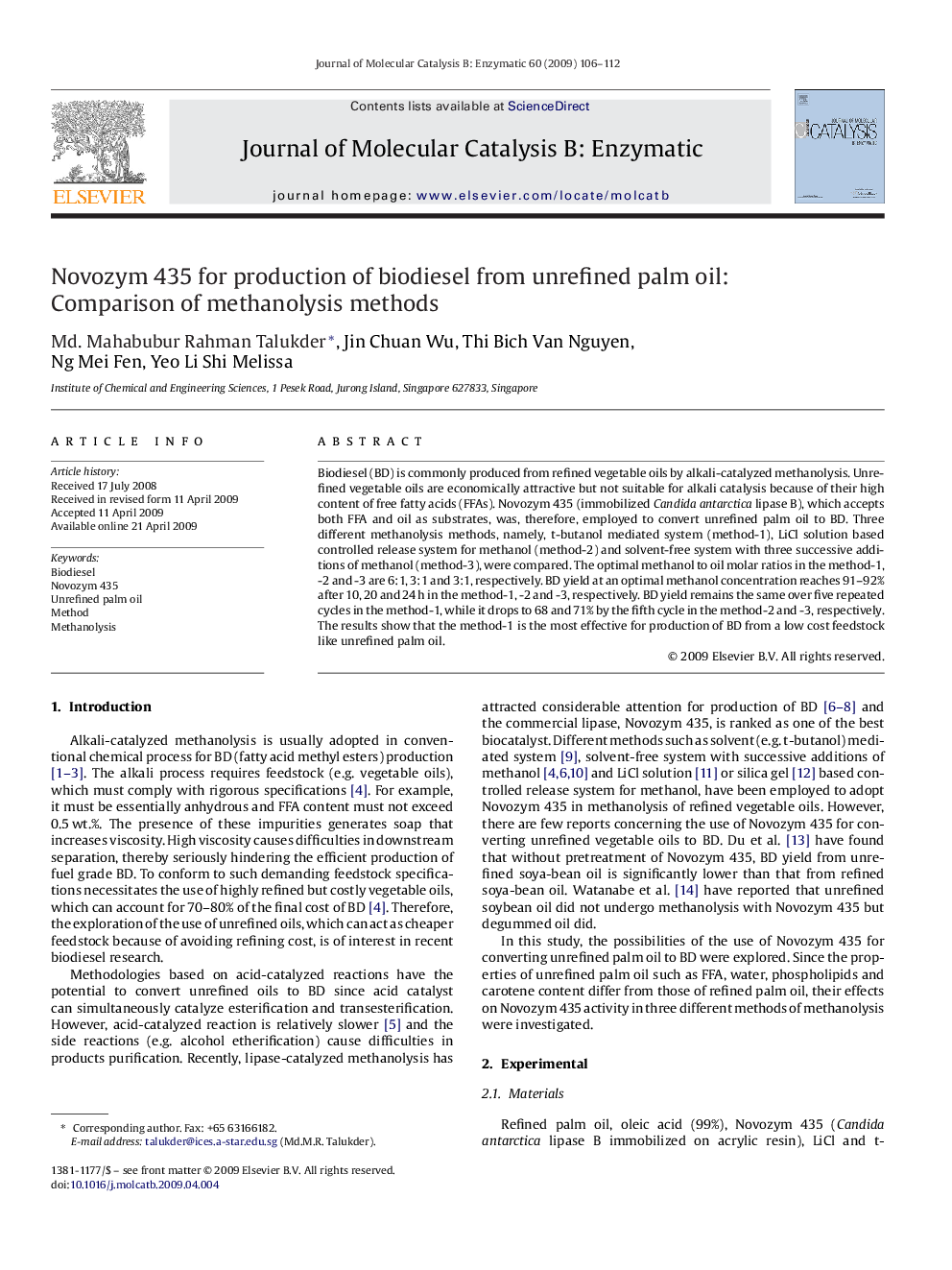| Article ID | Journal | Published Year | Pages | File Type |
|---|---|---|---|---|
| 70348 | Journal of Molecular Catalysis B: Enzymatic | 2009 | 7 Pages |
Biodiesel (BD) is commonly produced from refined vegetable oils by alkali-catalyzed methanolysis. Unrefined vegetable oils are economically attractive but not suitable for alkali catalysis because of their high content of free fatty acids (FFAs). Novozym 435 (immobilized Candida antarctica lipase B), which accepts both FFA and oil as substrates, was, therefore, employed to convert unrefined palm oil to BD. Three different methanolysis methods, namely, t-butanol mediated system (method-1), LiCl solution based controlled release system for methanol (method-2) and solvent-free system with three successive additions of methanol (method-3), were compared. The optimal methanol to oil molar ratios in the method-1, -2 and -3 are 6:1, 3:1 and 3:1, respectively. BD yield at an optimal methanol concentration reaches 91–92% after 10, 20 and 24 h in the method-1, -2 and -3, respectively. BD yield remains the same over five repeated cycles in the method-1, while it drops to 68 and 71% by the fifth cycle in the method-2 and -3, respectively. The results show that the method-1 is the most effective for production of BD from a low cost feedstock like unrefined palm oil.
